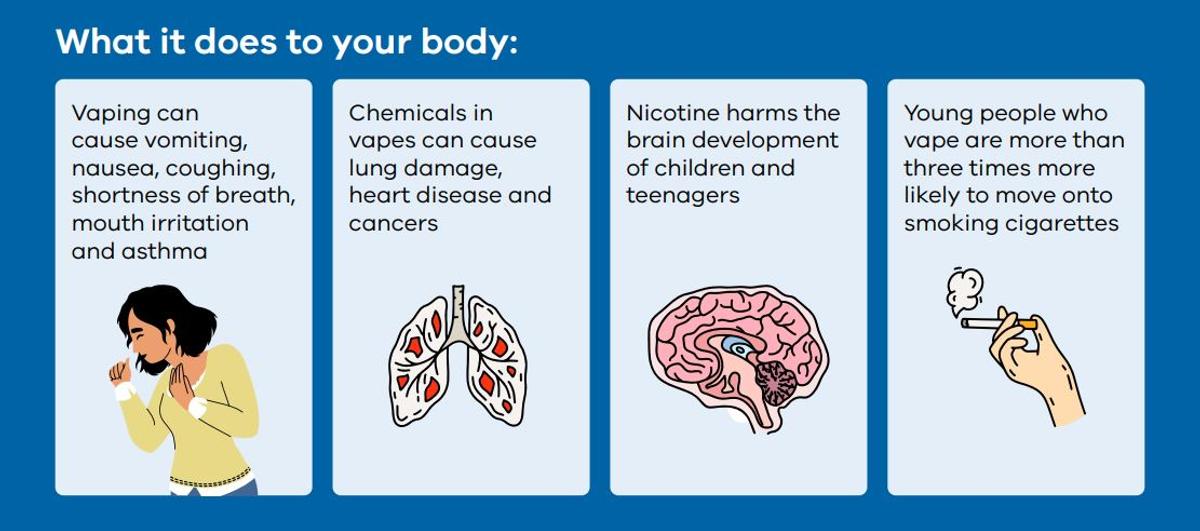Student Wellbeing

Smoking and Vaping Ban
Parents, carers, schools, and community all play an important role in protecting children and young people from, and educating them about, the harmful effects of smoking and vaping.
Research from the Royal Children’s Hospital shows many parents and carers are not aware of the harmful effects or how their views about smoking and vaping can impact the likelihood of a young person taking up smoking or vaping.
The Department of Education has developed resources to help you learn more about the health risks of smoking and vaping. The resources include advice about how to talk to children and young people about vaping, and where to get support. To access the resources, go to https://www.vic.gov.au/smoking-and-vaping-advice-parents
You can also view this video on smoking and vaping from experts at the Royal Children’s Hospital Melbourne for health advice and tips for starting a conversation with young people.
Is your child getting enough sleep?
Adolescents require more than 9 hours of sleep a night to function at their optimal. Whilst at home students may have been going to bed later and getting up later as they didn’t need to allow time to travel to school. Students may need to be waking up earlier to make it to school on time, therefore need to bring their bedtime earlier. This is something they should start doing in the lead up to returning to school. We will be encouraging students to focus on their sleep and a healthy sleep routine, in order to be able to make it to school on time and be able to concentrate in class.
Lack of sleep can cause
- fatigue
- poor concentration and memory
- mood disturbances
- impaired judgement and reaction time
- poor physical coordination
Sleeping tips!
- Establish a regular bedtime routine (relax before going to bed)
- Avoid using electronic devices in the hour before bedtime. Blue light emitting from these gadgets stimulates the brain and inhibits melatonin production – the hormone you need to sleep. Devices should be turned to a “night mode” which controls the brightness on your device.
- Eliminate electronic devices from the bedroom. These can cause disturbances throughout the night.
- Limit caffeine intake after midday.
- Eat regular meals and don’t go to bed hungry. Eating a full meal in the hour before bed is not beneficial.

